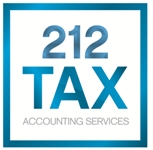When you file your income taxes, the Internal Revenue Service adds up your income from your job or business, your investments, and other sources such as gambling or lottery winnings. It then subtracts from that the total qualified deductions such as mortgage interest and property taxes.
After calculating your “taxable income,” the IRS subtracts how much you have already paid in taxes and then figures your refund or balance due based on what is left over. How it calculates that number depends on the sources of your income. Passive income is not subject to the same rules as earned income, or even investment income.
Passive income can be a great way to increase your bank balance, but a thorough understanding of how passive income is treated on your tax return is essential to ensuring compliance with IRS guidelines. Learn more about the two forms of passive income according to the IRS by reading below, and see how this income will affect your federal taxes.
What Is Passive Income?
The IRS defines passive income as money earned from a rental activity or a business in which the taxpayer does not materially participate. Income earned from investment returns, for example, is not considered passive income. Neither is money earned through inheritance or a gift — even though the taxpayer did not work or otherwise earn the money.
Because the taxpayer did not ‘materially participate’ in the earning of the income, the IRS treats passive income differently. The passive activity rules limit deductions and credits for some taxpayers. There are also limits on losses and tax credits related to current year passive income. If you sustain a large loss that exceeds current year passive income, you may be able to treat it as a deduction or credit in the following year.
Real Estate Rules
The IRS does not treat real estate professionals in the same way it treats taxpayers who invest in real estate for passive income. If you are a real estate professional, or you participate materially in the management of a real estate business, you could escape the passive income rules.
So who does the IRS count as a real estate professional? Taxpayers who spend more than 50 percent of their time working in real estate, provided the time spent exceeds 750 hours per year.
In addition, to avoid the passive income rules as they pertain to real estate, you should plan to document how you spend your time. If you own more than one property, plan to document the time you spend on each. That includes what you are doing when you are working with each property, not just how much time you spent on each one.
This is important because individuals who earn passive income through real estate often have numerous deductions related to property management each and every tax year. Passive income rules significantly limit how many deductions and credits you can take on your income taxes. Keeping accurate and detailed records that document your activities should reduce your tax burden.
Schedule a Consultation with 212 Tax
Many of the most financially successful individuals in the world are real estate developers and investors. Getting there is easier with careful tax planning. At 212 Tax, our real estate tax accountants will review your finances and devise a sophisticated strategy that can meet your specific tax needs. For more information on the tax treatment of real estate and passive income, schedule a consultation with 212 Tax.
Request a Consultation
We are able to work with your unique schedule including after-hour appointments, most weeknights, and weekends.
Call to action
Build Growth Opportunities with Extensive Business Financial Services
We serve clients in a range of industries, including hospitality, nightlife, real estate, legal, and medical.


